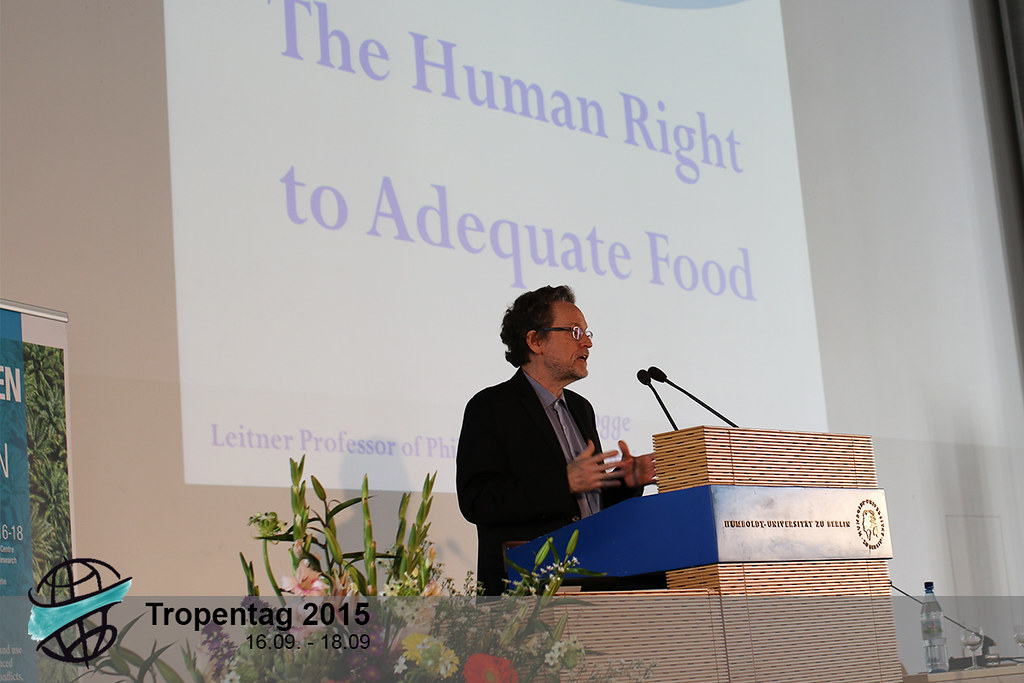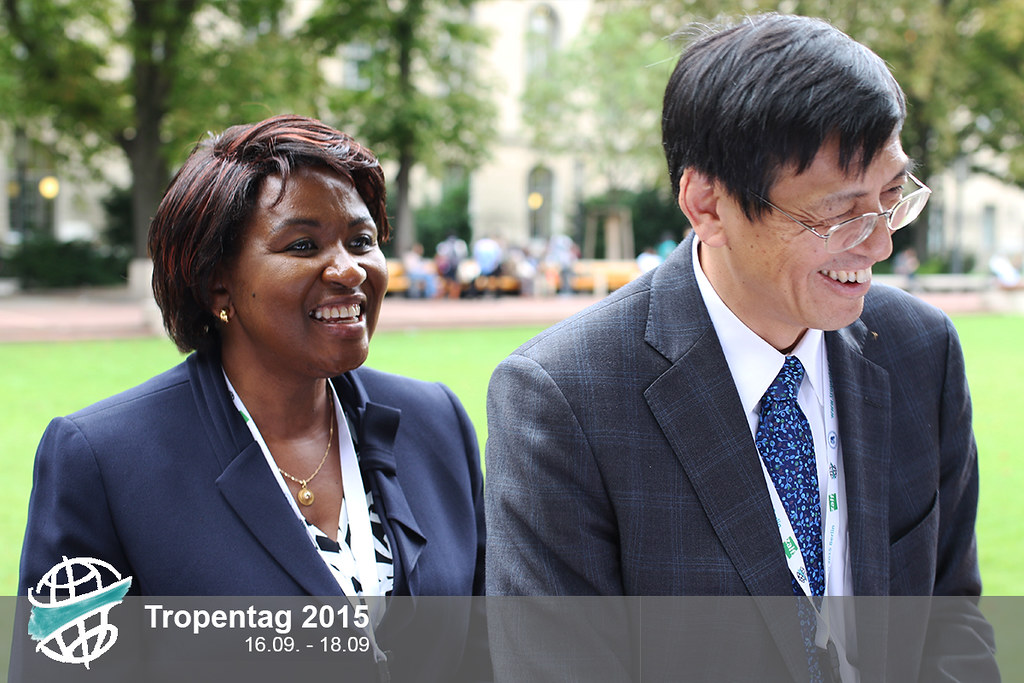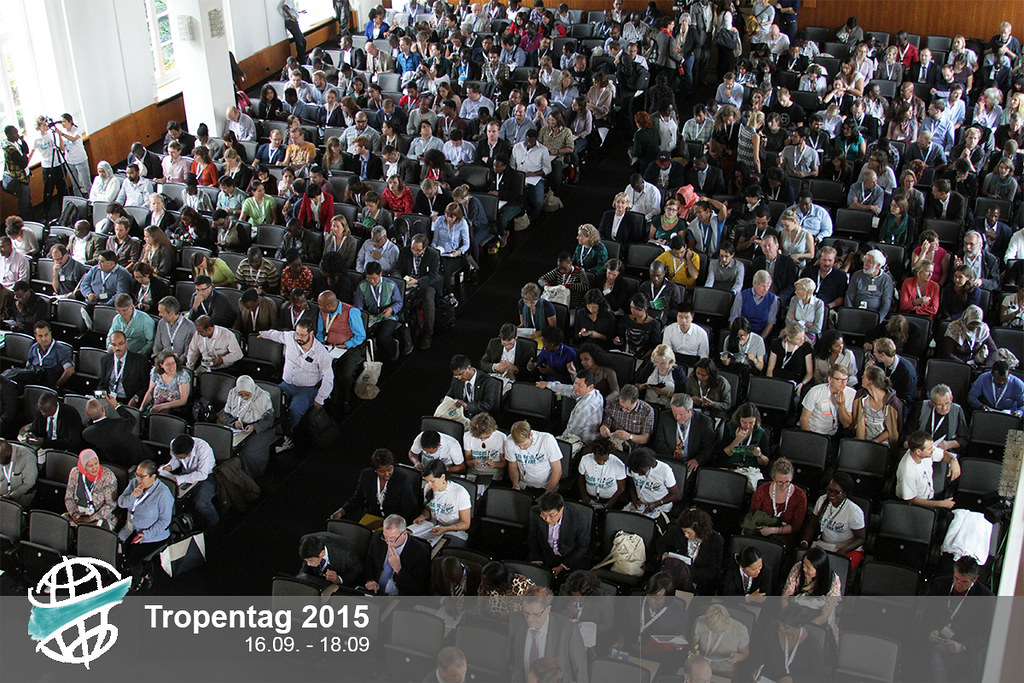The Tropentag of Controversies
A heightened debate marked the opening of the Tropentag conference with scholars, researchers, and development organizations confronting the complexity of addressing food insecurity, climate vulnerabilities, and gender disparities.
Thomas Pogge, a Professor of Philosophy at Yale University, contested the current methods used by organizations, such as the FAO, to measure food insecurity and hunger, thereby informing the international commitments to address world’s hunger and food insecurity.

Shenggen Fan from IFPRI, rather than responding to Pogge's critics, advocated for a resilient global food system, as has been discussed in an earlier IFPRI conference, 2020 Resilience that sought to inspire research, policy, and investment in resilience pathways. Resilience, being the planet’s and people’s ability to bounce back from shocks, is the twenty-first century most important approach to a healthy planet, people and profits. Fan highlighted the barrage of shocks relating to food security including among others, climate change, refugee crisis, civil wars, global financial and food crises, earthquakes, floods, and drought. Fan emphasized the need to address climate- induced shocks relating to water stresses and health, including food quality and food safety, nutrient deficiencies (in people and in agricultural landscapes), malnutrition and obesity, and as well, the health of ecosystems. He suggested a systems approach to addressing water stresses which are exacerbated by climate change and which affect agricultural landscapes, human health, ecosystems and economic development. Effective institutions and empowered individuals and communities are in a position to leverage on public-private partnerships to enhance resilience. Additionally, modern and proven technologies, climate-smart development pathways, and multidimensional food security data, and its application in food policy will enhance resilience from a household to a global level. Such policies must also include opportunities for innovation and be supported by fair and transparent trade. While Fan’s view that, ‘food crisis is not necessarily a bad thing, it’s the unpredictability of it, and the vulnerability of those involved in the value chain’, might be contested, his proposal to include resilience as a systems approach to development holds water for this conference and this year’s international debates on sustainable development goals.

Brave Ndisale & Shenggen Fan during an interview with student reporters
Speaking on behalf of FAO, Brave Ndisale responded in part to Thomas Pogge’s arguments and noted that it was not just about ensuring we have the right statistics and definition of food security, it is also about the contingent: already every 1 in 9 people are hungry, and yet the world produces enough food to feed the population. As a gender expert, her speech focused on women who are the most vulnerable and face multiple marginalization: their contribution is not accounted for in the global GDP, they have limited access and control to land, and therefore, lack income security. Ndisale advocated for not just good business models that include and empower rural women, but also those that address issues of land tenure and governance.
 The FAO’s Governance of Tenure Guidelines to which over 100 countries have signed, offers support to countries on their development and implementation of gender-specific land policies. An African Land Policy Initiative has been in operation through the African Union and the UN Economic Commission for Africa. Success stories of stakeholder engagement are from Niger where by the inclusion of women in the communal land planning meetings, women are now involved in commercial agricultural trade.
The FAO’s Governance of Tenure Guidelines to which over 100 countries have signed, offers support to countries on their development and implementation of gender-specific land policies. An African Land Policy Initiative has been in operation through the African Union and the UN Economic Commission for Africa. Success stories of stakeholder engagement are from Niger where by the inclusion of women in the communal land planning meetings, women are now involved in commercial agricultural trade.
These three subjects have set the foundation of this conference: What do the current definitions and measurements of food security tell us? Are our food systems resilient to cope with the barrage of shocks being accelerated by climate change? Are women, and other vulnerable groups, being well-included in the national and international efforts to address food security and climate change?





Comments
Post new comment